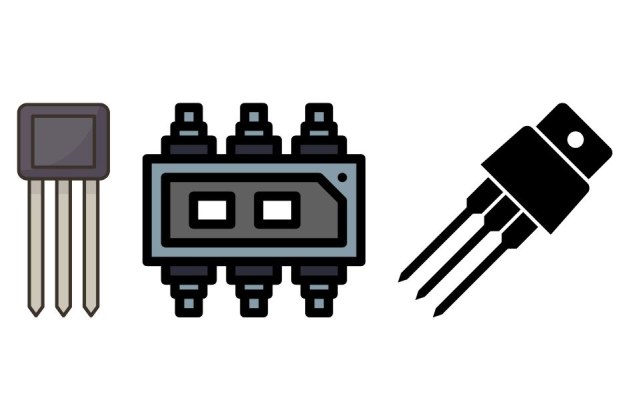The invention of the transistor is often regarded as one of the most important milestones in the history of modern electronics. This small yet powerful device revolutionized technology, paving the way for the development of nearly every modern electronic device we use today. But when exactly was the transistor invented, and which company was behind this groundbreaking creation?
In this post, we’ll dive into the history of the transistor’s invention, including the year it was created and the company responsible for bringing it to life.
The Birth of the Transistor: A Groundbreaking Discovery
The year was 1947, and three scientists working at Bell Labs, the research and development subsidiary of AT&T, made a monumental discovery. John Bardeen, Walter Brattain, and William Shockley were the brilliant minds behind the creation of the first transistor. Their work was based on a need to develop a more efficient and durable alternative to the vacuum tubes that were widely used in electronics at the time.
Vacuum tubes, while effective, were large, fragile, and consumed a lot of power. As technology advanced, there was a growing demand for a smaller, more reliable component that could amplify electrical signals in a much more efficient way. That’s when the trio at Bell Labs stepped in.
In December 1947, Bardeen and Brattain successfully demonstrated the first working point-contact transistor. This transistor could amplify electrical signals, which was a breakthrough in the field of electronics. Their invention was so revolutionary that it quickly gained attention from the scientific community and industry professionals.
Bell Labs: The Company Behind the Invention
Bell Labs, which was part of AT&T at the time, played a critical role in the development of the transistor. Founded in 1925, Bell Labs was home to some of the most important scientific innovations of the 20th century, with a focus on telecommunications, materials science, and electronics. The transistor, created by the Bell Labs team, was just one of many revolutionary inventions developed by the company.
AT&T and Bell Labs’ research also led to the creation of other key technologies such as the laser and the charge-coupled device (CCD), which are still in use today. The work done at Bell Labs transformed the world of electronics and solidified the company’s legacy as one of the leading innovators in the tech industry.
The Impact of the Transistor
The transistor’s invention marked the beginning of the modern electronics era. Its ability to amplify electrical signals, switch electronic circuits, and act as a semiconductor created the foundation for countless technological advancements.
- Smaller and More Efficient Electronics: Transistors allowed for the miniaturization of electronic devices. They enabled the development of smaller, more efficient radios, televisions, and computers, eventually leading to the personal computers, smartphones, and other devices we rely on today.
- Advancements in Communication: Transistors improved telecommunications, including telephone systems, and played a key role in the development of the internet and modern networking infrastructure.
- A New Era in Computing: The transistor directly led to the creation of integrated circuits (ICs) and microprocessors, which are at the heart of modern computing. These developments have driven the exponential growth in computing power over the past few decades.
- Consumer Technology: From calculators and home appliances to gaming consoles and mobile phones, transistors are essential components in virtually all modern electronic devices.
Recognition and Legacy
The invention of the transistor was so significant that Bardeen, Brattain, and Shockley were awarded the Nobel Prize in Physics in 1956 for their work. The impact of the transistor cannot be overstated, as it transformed industries ranging from consumer electronics to healthcare, military technology, and more.
The invention of the transistor is also a testament to the importance of research and collaboration in advancing technology. Without the support of Bell Labs, the groundbreaking discovery may have taken much longer to achieve.
A Revolution in Technology
The transistor was invented in 1947 by John Bardeen, Walter Brattain, and William Shockley at Bell Labs. This small yet powerful device sparked a technological revolution, changing the way we live, work, and communicate. From its early days as a substitute for bulky vacuum tubes to its central role in modern computing and consumer electronics, the transistor has been the cornerstone of the technology we rely on today.
As we continue to innovate and develop new technologies, it’s important to remember the incredible impact that the invention of the transistor had on the world. Without this discovery, we wouldn’t have the compact, powerful devices that are now an essential part of everyday life. The transistor’s legacy will continue to shape our future, just as it has shaped the past seven decades of technological advancement.




Leave a comment